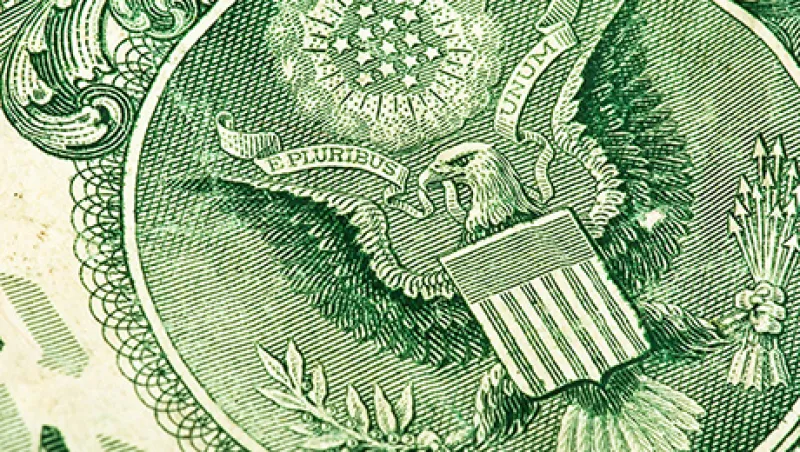Foreign-exchange markets this morning signaled that speculators continue to believe a June Federal Reserve hike is increasingly possible and a “yes” vote for a Brexit is less likely. Asa result, both the U.S. dollar and the U.K. pound sterling rose against other major currencies. This continued dollar strength came after the G-7 meeting ended over the weekend with no statement from policymakers, underscoring the perception that global leaders are divided over the path ahead. In particular, statements by U.S. Treasury Secretary Jack Lew warning of the dangers of excessive devaluation appeared to be a direct shot across the bow at his Japanese counterparts and hosts. Meanwhile, a visibly angry Bank of England governor Mark Carney defended his policy in statements before the Parliament’s Treasury Committee today as he clashed with Brexit stalwart Jacob Rees-Mogg over the potential impact of the U.K. leaving the European Union. The rise for both currencies sparked sympathetic selling in major commodity markets as investors continue to adjust risk profiles ahead of the two major June events.
EU leaders meet to discuss Greece. A gathering of euro zone finance ministers in Brussels today will focus on extending an additional tranche of more than $12 billion to Greece as well as debt-relief proposals. International Monetary Fund officials will also be in attendance one day after publishing a report backing implementation of a relief program to restructure Greece’s more than € 321 billion ($350 billion) debt.
Moody’s cuts Deutsche Bank rating. Moody’s Investors Service yesterday lowered its ranking for unsecured debt issued by Deutsche Bank to Baa2 while also cutting its deposit rating, citing a sluggish business turnaround at Germany’s largest bank combined with the impact of European Central Bank interest-rate policy on margins. In comments to the press later in the day, Deutsche Bank CEO John Cryan insisted that the move by Moody’s was unwarranted.
SEB to buy KKR cookware franchise. French-based Groupe SEB today announced a deal to acquire German coffee-machine maker WMF from New York alternative asset investor KKR in a transaction valued at $1.8 billion in cash and assumed debt and liabilities. The move will provide the French company with more than 25 percent of the global market for professional coffee makers and will expand its reach into Germany across the full spectrum of cookware.
German growth heats up, confidence wanes. Gross-domestic-product data from Germany’s Federal Statistics Office released today confirmed the preliminary estimate of 0.7 percent growth during the first three months of the year, an annualized pace of 1.6 percent. The GDP data was driven by a 1.8 percent increase in capital spending and a significant rise in property development, as companies took advantage of ultralow interest rates. Despite the best pace of growth in two years, sentiment index figures from the ZEW Center for European Economic Research indicated that investor confidence in the European Union’s largest economy slipped for the first time in months, with the closely watched economic sentiment registering at 6.4 versus a prior 11.2 and consensus forecasts for 12.
Portfolio Perspective: Taiwan, Touching From A Distance — Sean Darby, Jefferies
The inauguration last Friday of Tsai Ing-wen saw the new president taking office with the economy slowing and a mandate to undertake domestic reforms. The honeymoon period over Cross Straits and China trade issues is likely to end quickly and Tsai will need to delicately balance local pressure to cool relations with China while acknowledging the economy’s growing dependence on the mainland.
Tsai won a landslide victory that saw her Democratic Progressive Party win both the presidential election but also control of Taiwan’s unicameral parliament, the Legislative Yuan.
Taiwan’s economy barely grew in 2015 (0.8 percent) while the economic data was weak with March industrial production contracting 3.6 percent year-to-year. However, the country enjoys a huge current account surplus forecast at 12.3 percent of GDP and a very slight budget deficit of -0.9 percent of GDP in 2016. The Taiwanese central bank cut the discount rate in March by 12.5 basis points to 1.5 percent and it is likely to have to cut again in June given the low-growth, low-inflation environment.
However, the central bank is fast approaching the limits of conventional policy with interbank rates close to zero, while there is little room to expand fiscally given that the debt level has already reached its statutory limit with Tsai committed to shrinking the budget deficit. Therefore, central bank Governor Perng Fai-nan is likely to have to use some form of unconventional policy to support growth in the future.
Sean Darby is chief global equity strategist at Jefferies in Hong Kong.






